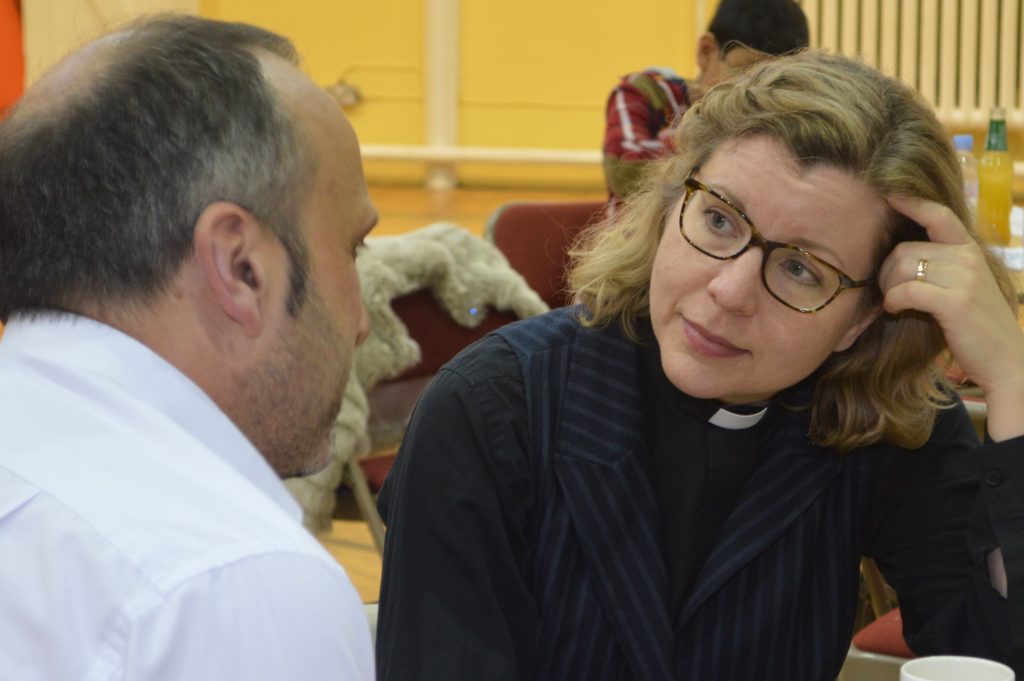My workspace is at the top of our house. We have wide windows that allow uninterrupted sky, trees, birds and a view of the homes amongst which we nestle. As I write I look again at the semi-detached house opposite me. Weeks ago they began work on the roof. It looks like some new windows are to be inserted and the slates replaced. Shortly after they started, the rain came, so they stopped. They haven’t come back. The scaffolding remains; the ladders reach into the blue; the tarpaulins stretch across the broken roof; the piled bricks are next to the child’s swing. What has happened? The weather has changed, and we have basked glorious heat and sunshine for several weeks now.
Unfinished business. To begin with its messy. Gradually it becomes so much a part of the landscape of our lives we cease to see it. The children dance around the scaffold struts playing games of their own. We reason to ourselves, ‘we’ve never used a room in the roof so we don’t miss anything’. The pain of things begun and yet uncompleted dims. We accommodate, we allow, and disappointment and regret replaces hearts of hope and expectation.
When we made our film, Shaking Dreamland it was exciting. Actors saying lines I had written. Scene after scene completed. The wrap party a triumph. But we didn’t have a film. Unless we pushed through what was an even harder few months of time, effort, and creativity we would hold nothing in our hands. It needed editing; music and Foley added; without this we still had nothing. Once concluded an audience must found. It was a tortuous process but the end product was something to be proud of and I loved our premiere.
Whatever we start it takes discipline to finish. Becoming a starter/finisher is important otherwise things drift, negative feelings build and a voice in your head gets increasingly strident and destructive. This will then affect everything you do and perhaps makes you give up trying. Here are some thoughts on being a starter/finisher:
- Procrastination–don’t allow yourself to be deflected by the urgent, but always give the important consideration. An example is relationships. They mean so much to me, for them I will stop, allow myself to be interrupted and go with the flow. However I will then return to the task I set myself.
- Never happy with what you produce? Does the voice in your inner ear trip you up constantly? Does it tell the truth? Choose to listen to a truthful voice.
- When you start something decide what the goal is and make sure it is achievable. Be specific. I elect to write write a novel. My end product is a manuscript.
- Learn to discipline yourself. As a writer I am required to write words on a page.
- Don’t begin too much. One step at a time. Attending to the small tasks in life helps learn the habit of finishing. Do all the dishes; pay all the bills on time; do that swim regularly.
- Make short-term goals in a long-term process and celebrate hitting each one. We don’t celebrate enough. I am trying to learn.
- Allow yourself to recognise when you set up something you cannot do and make a decision. You can stop. You can change the goal.
- It is hard to finish something important to us because then we open ourselves up to criticism. Whenever I create I am nervous how it will be received. I always want to create something beautiful and perfect and it never is. I put my heart and soul into my creating and I can do no more. ‘I have done what I can’–to vaguely quote Arthur Ashe. I can live with that whatever comes my way.
We may leave business unfinished, but strangely I have discovered, it won’t leave us and without attention often turns into a stumbling block.

